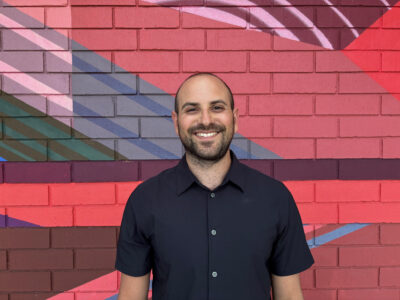Amid the chaos, take time to grieve our collective losses.
MARCH 29, 2020 John Dickerson
Contributing writer at The Atlantic
If you have ever lost someone you loved, you know the feeling of seeing the world through a bank teller’s glass. You observe other people laughing and enjoying their day, but you are apart from them, separated by a thick, bulletproof barrier. You wonder how they can savor that plate of pasta or play music that loud, given what’s happened.

Normally the experience is isolating, but in our new coronavirus world, we’re all on the same side of the glass. Every day, we are in contact with the suffering of others. Even if you don’t know anyone who has died, or have a loved one who you are worried will die, you have read about the growing number of deaths in America. If you are like me, your mind can’t help but imagine the people at the other end of those numbers. Today a woman became a widow. A daughter never got to say goodbye to her father. A son answered his mother’s request for a blanket, the last words she would ever say to him. For many thousands, today will be one of the hinge points of their life; everything will be defined as either “before” or “after.”
The blast radius of a single death is bigger than we might think. There are the neighbors who burn a candle in the window in solidarity with the family fretting the phone call that might come in the night. There is the retiree who has lost a bridge partner. The nurses and doctors fighting this virus have to shoulder the emotional load for every call to frantic relatives looking for a sign of hope. They also have to deliver the bad news.
Death and suffering surround us all the time, but typically the mourning are not in danger of being trampled by public debate. These deaths are now front-page news, fodder for Twitter fights or cable pundits. And many of us are distracted, enraged, scared, or just doing what we can to manage a full plate of immediate worries. But in this period, we should spare a moment for sorrow and grief. This is the human thing to do; it is what following through on the pledge to be in this together actually means.
If we spare a moment, we give our neighbors the simple communal feeling of being seen in their loss. If we spare a moment, we minimize the risk of sending a public signal to those who have just lost their world that the rest of the world is indifferent to their suffering. If we spare a moment, we acknowledge that the national push to find solutions and get back to normal at some point, as reasonable as that is, is impossible for many.
Ideally a public figure would use his platform, as heroic leaders have in the past, to set this tone. In the absence of that, perhaps we can all use our platforms, whether they be Twitter or the family text chain, to say what I have tried to say here: that we feel your loss and sorrow, even if words are too clumsy. And when words fail altogether, a moment of silence can say You’re not alone, even in a moment of deep loneliness.
The test of a time like this is that it either drives us toward our common humanity, or it drives us apart. Let it be the former.
JOHN DICKERSON is a contributing writer at The Atlantic and a correspondent for 60 Minutes. He is the author of The Hardest Job in the World: The American Presidency.



